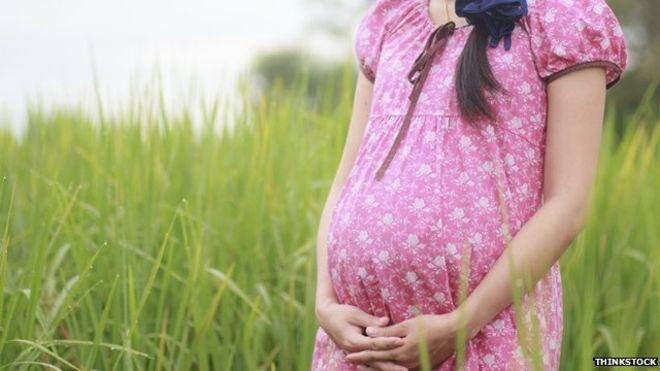Spina bifida: Parents hope surgery in womb will help son walk
- Published
Adam Daly was operated on while he was still in his mother's womb, as Marie-Louise Connolly reports
The parents of a baby with spina bifida have said they hope that pioneering surgery he received while still in the womb will help him to walk.
Adam Daly received fetoscoptic surgery in Germany that was funded by the Belfast Health and Social Care Trust.
It is only the second time the surgery has been performed on an unborn child from Northern Ireland.
Adam's parents Paula and Aidan, from County Antrim, said they are amazed by how he has reacted to the surgery.
Speaking to the BBC at their Lisburn home, they said Adam has been able to move his legs.
While the procedure is considered extremely risky, they are confident they gave their son the best start in life.
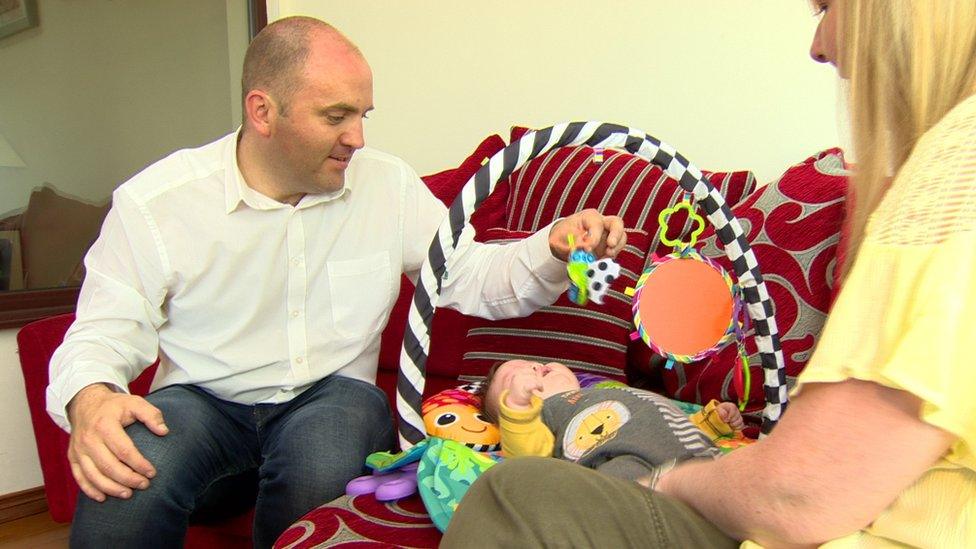
Adam's parents Paula and Aidan say they are amazed by his progress
"I keep saying to him in our private moments that he is going to change the world," Mr Daly said.
"I just want him to grow up fit and healthy and have as many opportunities as any child would have.
"Whatever direction he wants to take, we'll be there to support him, and I am looking forward to be able to say to him later that at this age we did everything we could for him."
Decision
Adam's condition emerged during the 20-week scan.
Mrs Daly said the couple had no idea they would receive the news of their son's condition.
"When we went for the scan we were both thinking that the biggest decision was finding out about the gender and if we tell family and friends," she said.
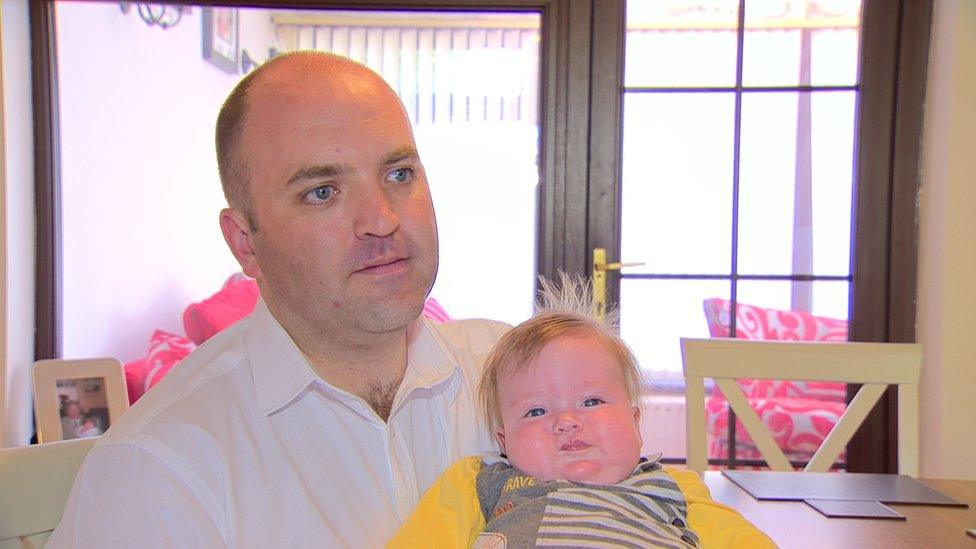
Mr Daly says he is confident his son has been given the best start in life
"But the sonographer took her time looking and measuring things, and then I knew something wasn't quite right.
"The words spina bifida were familiar but I knew nothing about it."
Spina bifida literally means split spine, and it manifests itself as a hole at the bottom of the baby's spine.
That means the spinal cord does not form properly and may also be damaged.
The central nervous system and spine develops between the 14th and 23rd day after conception.
Spina bifida occurs when the neural tube fails to close correctly.
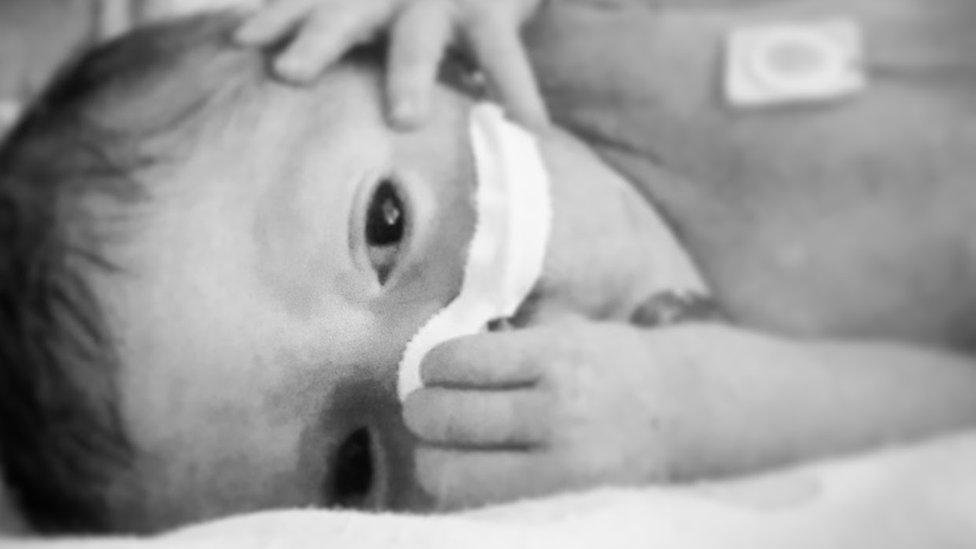
Adam's three-hour operation on his spine took place in Germany
The vertebrae also fail to close in complete rings around the affected portion of the spinal cord.
The length of the lesion will determine the child's health complications, including mobility, fluid on the brain and bladder problems.
Extreme cases can result in paralysis.
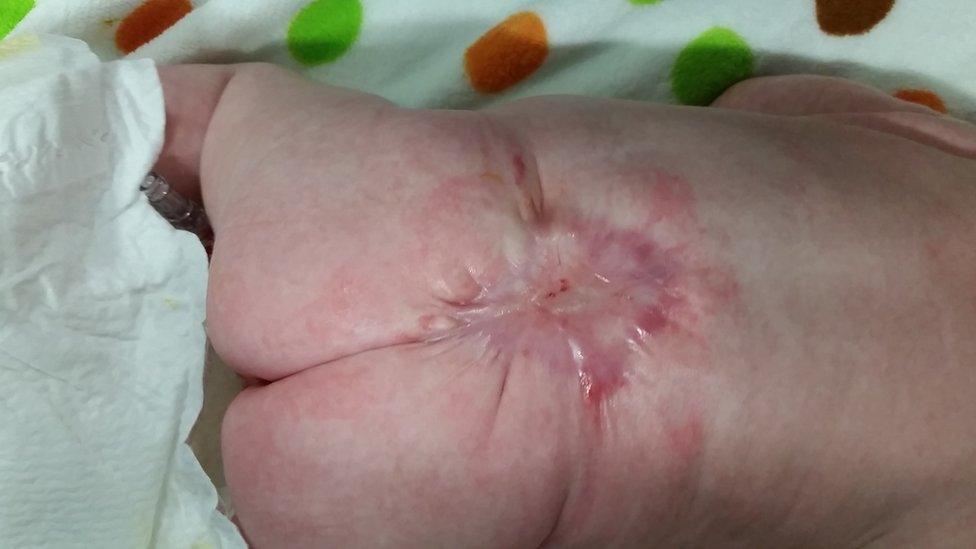
The hole at the base of Adam's spine was closed by key hole surgery
Risk
The family said they are keen to tell their story as they want other couples to be aware they have a choice to have surgery before the baby is born.
The procedure is only available in the United States and parts of Europe.
Mrs Daly said the decision to go ahead with the three-hour operation was "the biggest decision we have ever had to make".
"The thought of having to do such a huge operation and in a different country with the risk of further complications travelling home was scary, especially as we have another child and we had to think of her," she added.
The hole in the spine is sealed by keyhole surgery and the impact of the surgery is still visible after birth.
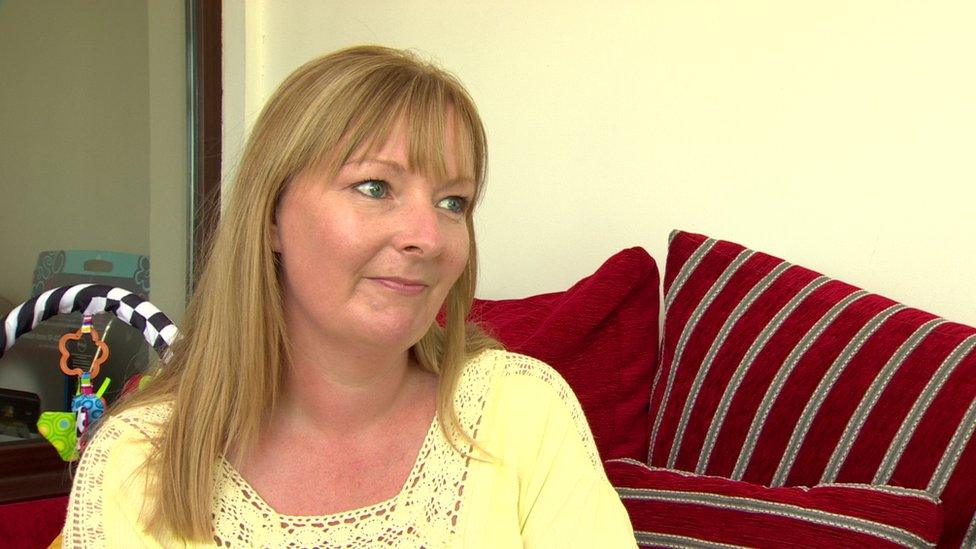
Mrs Daly says the decision to take Adam for surgery was a "scary" one to take
Normally in Northern Ireland and the rest of the UK, the lesion at the base of the spine is closed by neurosurgeons after the baby is born.
That means the baby is liable to have further health complications.
On Tuesday, an international conference in Belfast will discuss the merits of fetoscopic surgery in babies diagnosed with spina bifida and the Daly family will tell their story to an audience at Queen's University.
It is hoped that England will be added to the list of countries that are able to perform the surgery.
- Published5 February 2016
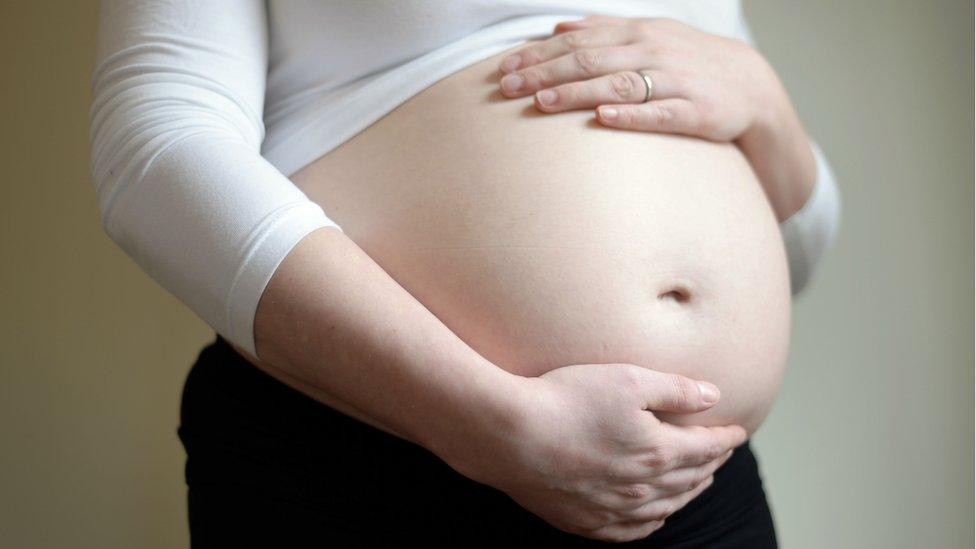
- Published26 October 2015
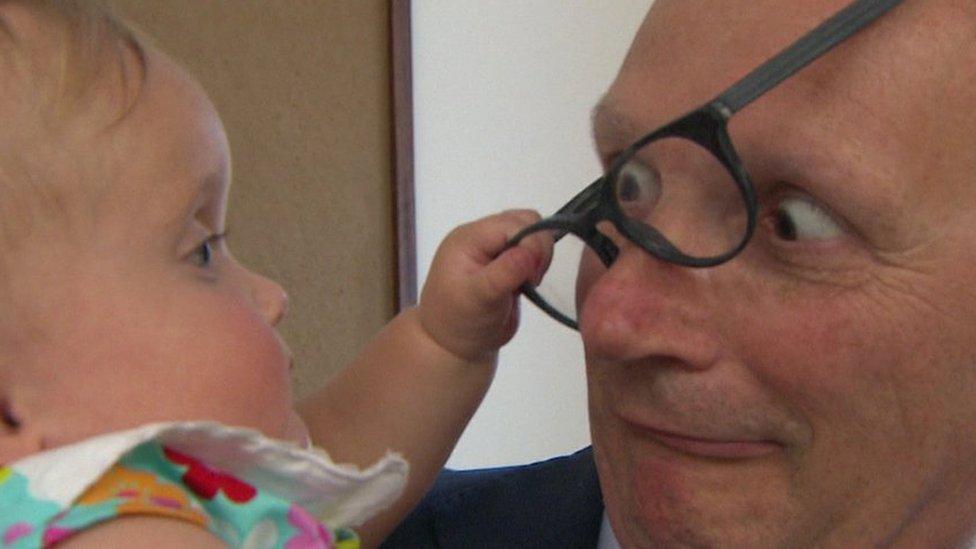
- Published27 July 2015
